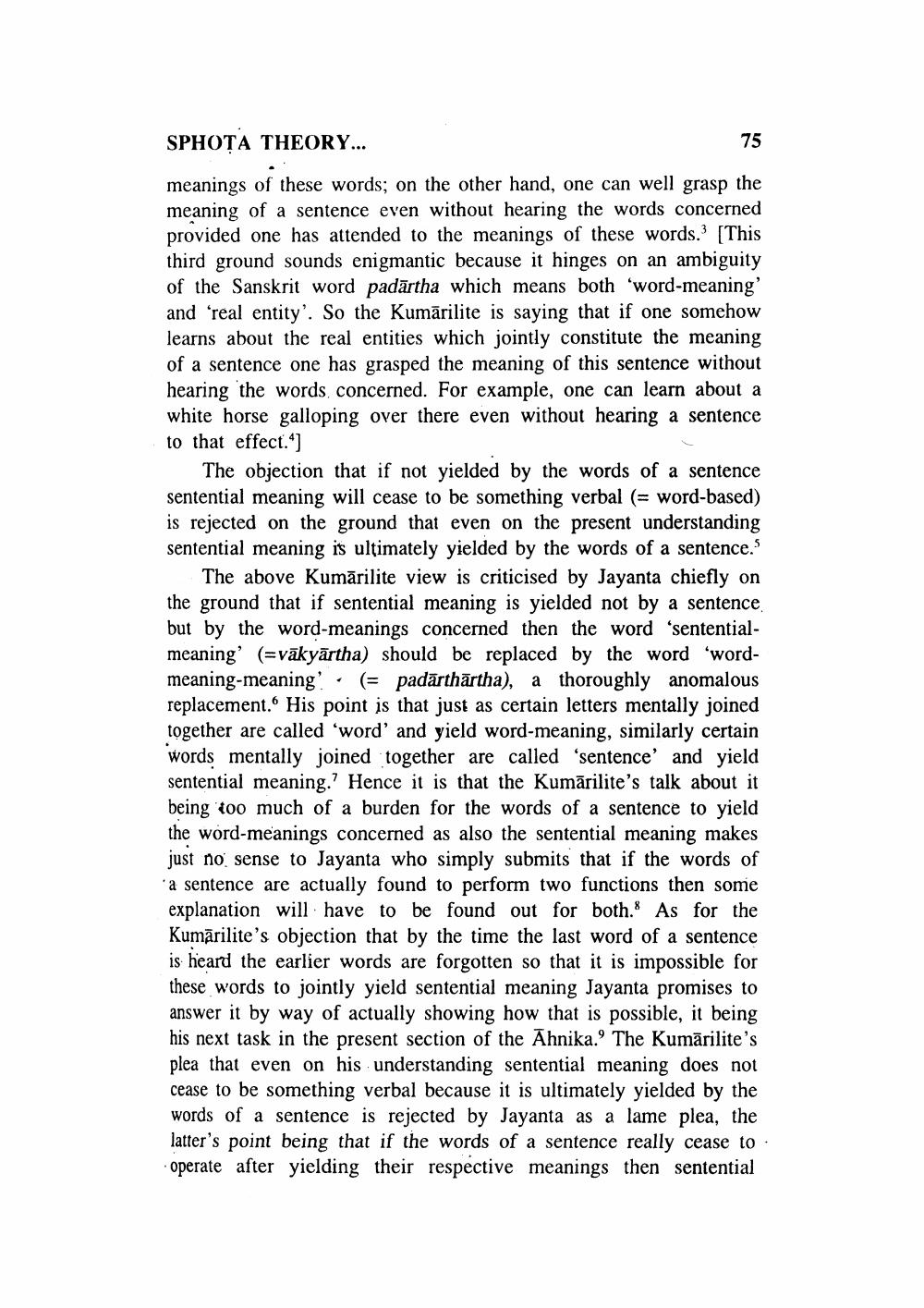________________
SPHOTA THEORY...
75
meanings of these words; on the other hand, one can well grasp the meaning of a sentence even without hearing the words concerned provided one has attended to the meanings of these words. [This third ground sounds enigmantic because it hinges on an ambiguity of the Sanskrit word padārtha which means both 'word-meaning' and real entity'. So the Kumārilite is saying that if one somehow learns about the real entities which jointly constitute the meaning of a sentence one has grasped the meaning of this sentence without hearing the words concerned. For example, one can learn about a white horse galloping over there even without hearing a sentence to that effect.")
The objection that if not yielded by the words of a sentence sentential meaning will cease to be something verbal (= word-based) is rejected on the ground that even on the present understanding sentential meaning is ultimately yielded by the words of a sentence."
The above Kumārilite view is criticised by Jayanta chiefly on the ground that if sentential meaning is yielded not by a sentence but by the word-meanings concerned then the word 'sententialmeaning' (=vākyārtha) should be replaced by the word 'wordmeaning-meaning! . (= padārthārtha), a thoroughly anomalous replacement. His point is that just as certain letters mentally joined together are called 'word' and yield word-meaning, similarly certain words mentally joined together are called 'sentence' and yield sentential meaning. Hence it is that the Kumārilite's talk about it being too much of a burden for the words of a sentence to yield the word-meanings concerned as also the sentential meaning makes just no sense to Jayanta who simply submits that if the words of a sentence are actually found to perform two functions then some explanation will have to be found out for both. As for the Kumārilite's objection that by the time the last word of a sentence is heard the earlier words are forgotten so that it is impossible for these words to jointly yield sentential meaning Jayanta promises to answer it by way of actually showing how that is possible, it being his next task in the present section of the Āhnika.' The Kumārilite's plea that even on his understanding sentential meaning does not cease to be something verbal because it is ultimately yielded by the words of a sentence is rejected by Jayanta as a lame plea, the latter's point being that if the words of a sentence really cease to operate after yielding their respective meanings then sentential




